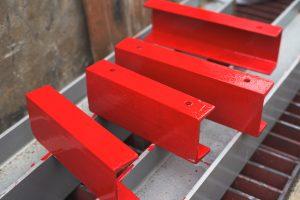If you’re comparing offshore vendors with a Canadian-owned fabrication partner, three factors usually decide the outcome: speed, cost control, and consistent quality. A Canadian team that offers true design-to-delivery support can remove time-zone friction, stabilize budgets, and deliver parts that meet spec the first time—without the communication gaps that often derail projects.
Search intent: You’re looking for a reliable custom metal fabrication shop that helps Canadian manufacturers move quickly, avoid hidden costs, and ship production-ready parts. This guide explains the three advantages to expect from a Canadian-owned partner—and the questions to ask before you choose one. For a plain-language primer on processes and terminology, see this overview of metal fabrication from Lincoln Tech.
Who This Helps (and What They’re Trying to Solve)
- Plant managers and engineers who need rapid design reviews, quick prototypes, and on-time production runs.
- Procurement teams tired of surprise import charges or slow, opaque freight updates.
- Quality leaders who need documented processes, material traceability, and predictable tolerances.
MBI Industrial Manufacturing Group positions itself as a Canadian, one-stop partner for design, prototyping, machining, welding, assembly, and production—helpful when you want fewer hand-offs and clearer accountability.
Advantage #1 — Faster, Clearer Collaboration in Canada
Same-time-zone reviews and engineering input
Working with a Canadian-owned team means design reviews, change requests, and troubleshooting happen on your schedule. No overnight gaps. Fewer message chains. When engineers and fabricators can iterate in real time, risk drops and parts reach the floor faster.
MBI highlights local, Canadian-owned operations and in-house expertise—so you can expect quicker feedback loops and easier site visits when needed.
Quick wins you’ll feel on week one:
- Live design reviews with manufacturing input.
- Same-day answers on tolerance, finish, or material swaps.
- Faster approval cycles on prototypes and fixtures.

Rapid design-for-manufacturing (DFM) and prototyping
Early DFM reduces rework and scrap. When the same team that cuts, bends, welds, and assembles your parts weighs in during design, you avoid “pretty on paper, painful to produce.” MBI’s capabilities and blog content emphasize precision machining and modern fabrication—useful signals that DFM help is close by.
Checklist:
- Ask how your partner documents DFM recommendations.
- Request a prototyping timeline and an example of a recent DFM win.
- Confirm who signs off on functional tests before production.
Advantage #2 — Lower Total Cost and Fewer Shipping Surprises
Domestic lead times and predictable logistics
Even when an offshore quote looks cheaper, elongated lead times and limited shipment visibility inflate the total cost. Domestic builds cut transit distance, reduce handling, and simplify last-mile delivery to your facility. If a design change pops up mid-build, a nearby shop can adapt faster than a far-away vendor.
MBI operates from Southwestern Ontario and serves customers nationwide, which helps keep timelines and coordination tighter for Canadian manufacturers.
Budget impacts you can model:
- Fewer expedites to protect a schedule.
- Less buffer stock to hedge against ocean or border delays.
- Lower risk of line stoppages due to late or damaged shipments.
Budget control without duties, brokerage, and long freight
Offshore buys can carry currency risk, brokerage fees, duties, and higher insurance on long routes. Domestic sourcing replaces those variables with stable, predictable costs—especially helpful for multi-release orders or products that evolve after launch.
How to vet this:
- Ask for an all-in landed cost comparison, including change-order scenarios.
- Confirm packaging standards and who owns carrier risk at each stage.
- Review invoicing terms to ensure clean PO-to-receipt reconciliation.
Advantage #3 — Consistent Quality from a One-Stop Canadian Team
Precision machining, welding, assembly, and in-house QC
Complex parts move through fewer hands when a single partner handles cutting, forming, CNC machining, welding, coating, assembly, and verification. That means less variation and easier traceability. MBI presents itself as a true one-stop shop with precision processes and quality checks throughout the build.
Lincoln Tech’s primer is useful if you’re aligning internal teams on process steps (e.g., cutting, bending, welding, finishing) and why sequence discipline affects final tolerance stack-ups. Link this in onboarding materials for new stakeholders.
What to look for on a plant tour:
- Calibrated CNC equipment and documented inspection routines.
- Weld procedure consistency and fixture strategy for repeatability.
- Controlled storage for materials and coatings to prevent contamination.

Traceability, accountability, and post-delivery support
When your partner is close, warranty conversations and continuous improvement loops are simpler. You can bring parts back for analysis or invite the fabrication team on-site to observe fit-up. MBI emphasizes Canadian ownership, long-term relationships, and local accountability across its site and company story.
Before you commit, ask:
- How is material cert data captured and shared?
- What triggers a corrective action report (CAR)?
- What’s the standard response time for field issues?
What Canadian Manufacturers Should Ask Before They Choose a Partner
- Scope: Can the shop handle design assistance, prototyping, machining, welding, assembly, and packaging—or will you manage multiple vendors?
- Capacity: What’s the current lead time for prototypes vs. production?
- Quality: Which inspection tools and documentation are standard for your parts?
- Communication: Who is your day-to-day contact and how often do you get updates?
- Sustainability & Safety: Ask about waste reduction and safe-work practices. (MBI’s recent posts touch on automation and efficiency—good indicators of a continuous-improvement mindset.)
Why Work with MBI Industrial Manufacturing Group
MBI is Canadian Owned & Operated and presents a one-stop, design-to-production model with precision machining, forming and welding, assembly, and project management—useful when you want speed without sacrificing quality. Review their Why MBI page for a quick capabilities snapshot, then browse the Capabilities section for specifics. When you’re ready, request an estimate through Contact and include drawings, quantities, and target timelines.
Get a Quote
Have a drawing set or a parts list ready? Send it to the MBI team for pricing, lead times, and DFM suggestions. Start here: Contact MBI.
Sources & Further Reading
- What is Metal Fabrication? (process overview for non-engineers) — Lincoln Tech. https://www.lincolntech.edu/news/skilled-trades/welding-technology/what-is-metal-fabrication
- MBI site pages referenced above for capabilities, Canadian ownership, and location.
FAQs
Is a Canadian shop always cheaper than offshore?
Not always on unit price—but total project cost often is lower once you include freight, duties, brokerage, delays, and rework risk. Shorter lead times also reduce buffer inventory.
How do I compare quality between shops?
Ask for inspection plans, sample reports, and fixture strategies. Tour the facility. Review weld procedures, CNC maintenance logs, and calibration records.
What files should I send for a quote?
A PDF drawing set plus STEP or native CAD (with material, finish, and tolerance notes). Include quantities, release timing, and any functional tests.
Can the same partner handle assembly and packaging?
Many Canadian shops—including MBI—offer assembly and packaging so you receive production-ready units. Confirm packaging specs and labelling at the quote stage.
What industries benefit most?
Automotive, material handling, food & beverage equipment, construction, renewables, aerospace, medical devices—anywhere precision and documentation matter.
